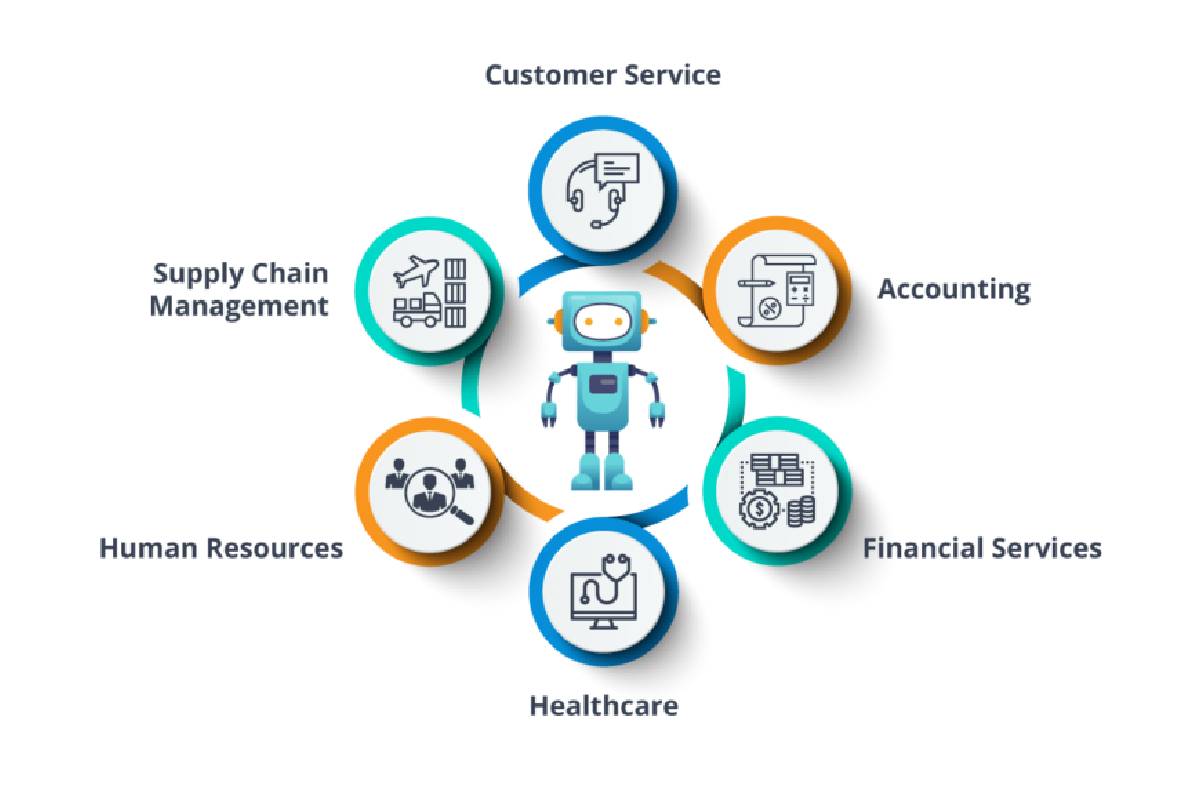Robotic Process Automation (RPA) has taken the world by storm with technology already breaking paradigms across industries, especially banking. With automation technology receiving a lot of consideration in recent times, it has become mandatory to fathom the concept and its retribution to channelize it seamlessly by banks with maximum efficiency and minimum threats.
Hence, it will be fair to acknowledge that Robotic Process Automation (RPA) solutions are transforming the dynamics of the banking industry. To understand the complete subtleties, we need to know – what is an RPA solution?
What is RPA technology?
RPA is a technological solution for automating manual business procedures to allow banks to stay competitive and flourish in the financial landscape. RPA banking permits customers to automatically process payments, deposits, withdrawals, and other banking transactions without manual intervention.
By combining banking automation with artificial intelligence, banks can restore numerous rule-based, repetitive, and human operations. With the banking and financial industry expanding rapidly in recent times, technology will lead to faster, more secure, and more dependable services.
The intention is to maximize efficiency and keep the costs grounded and maintain extreme security levels. To answer these challenges, is there any better option than RPA?
Most banking and financial institutions believe that RPA solutions can immensely enhance the efficiency of their processes, primarily in all the repetitive and manually programmed processes. Robotic process automation has significantly simplified the back-office functions that once bogged down bank staff.
How Intelligent Automation (IA) augments RPA?
RPA offers the staples required to systematize the processes. To further enrich RPA, the banking industry has already been carrying out Intelligent Automation (IA) technology. IA improves RPA through Machine Learning (ML) and Artificial Intelligence (AI).
Few Core Advantages of RPA in Banking
Table of Contents
No New IT Infrastructure
The execution of RPA in the banking industry demands almost no new infrastructure as the banks can utilize the current IT services and realize the gains. The standout aspect of RPA is that it can take advantage of the native user interfaces of existing legacy systems to perform its ‘minimally invasive’ solution that flows smoothly upon the existing infrastructure.
Save Time and Money
Cost savings initiatives have been a primary focus for banks to be competitive and provide better user services. Implementation of Robotic Process Automation within different processes makes the banks execute procedures faster while improving the productivity and quality of the employees.
Enhance Processes
The RPA software allows banks to minimize their paperwork. Additionally, the IA processes can swiftly scan the relevant information by leveraging the RPA tools that furnish the drag-and-drop technology to automate processes with little to no development.
Improved Regulatory Compliance
Banking institutions should abide by legal and financial regulations. A recent report suggests that over 70% of compliance officers believe that automation tools like Robotic Process Automation could significantly enhance the usage of compliance resources.
Improve Customer Experience
RPA solutions can help banks improve their customer experience as the customers can reach out to staff to get answers to many common problems. RPA tools can promptly scrutinize the doubts of customers and provide solutions to their queries.
Accounts Payable
‘Accounts payable’ is a time-demanding process. It instructs the staff to automate vendors’ invoices and then authenticate the data in each field before administering it. Intelligent Automation, which includes Optical Character Recognition (OCR), can systematize these tedious processes by mechanically reading the invoices and crediting the payments after rectifying errors and validating data.
Credit Card Processing
The implementation of Robotic Process Automation software has enabled banks to go through credit card applications and dispatch the cards promptly.
Mortgage Processing
For approving a Mortgage loan Processing , banks need to go through various stages – credit checks, employment verification, and inspection, before granting the loan. However, the perfect answer to such issues is RPA solutions.
Fraud Detection
Technology has led to increased fraud cases as it has become difficult for banks to check every transaction manually. Robotic Process Automation software can use algorithms to identify fraudulent transactions, flag them, and pass them on to the proper departments.
Know Your Customer (KYC) Process
Banks are accountable for collecting Know Your Customer (KYC). Banks employ hundreds of FTEs to validate the accuracy of customer information.
General Ledger
Banks have enormous amounts of data to deal with and update essential information like revenue, liabilities, and expenses that Robotic Process Automation can authenticate.
Report Automation
Robotic Process Automation can help banks to prepare financial reports with correct data.
Account Closure Process
With RPA, banks can send automated reminders if customers have not provided the necessary proof for account closures.
Conclusion – Future Prospects
With the COVID-19 pandemic accelerating the application of technologies , the banking industry is destined to flourish as modern-day customers are eyeing infallible, secure, and faster solutions. However, besides a streamlined and seamless process, the banking institutions must execute the latest technologies that will tap the new customers and reshape the growth trajectory of the banking landscape.


